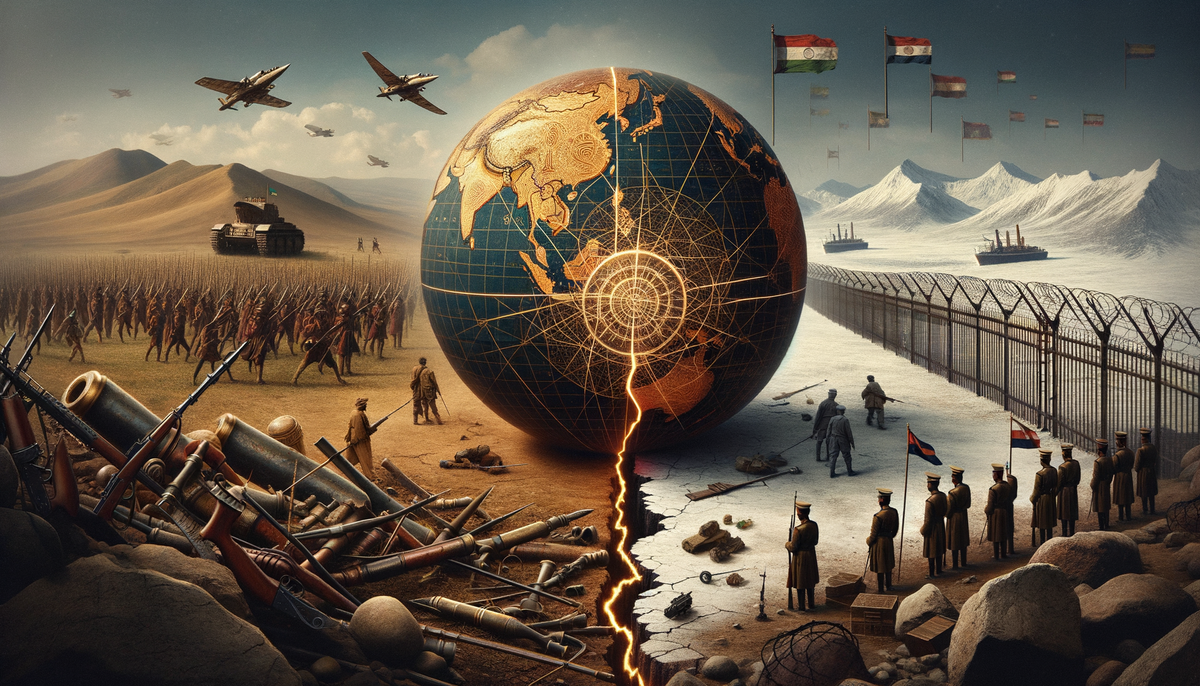India Pakistan War: An In-Depth Examination of Continual Conflict
A comprehensive analysis of the India Pakistan wars, focusing on historical conflicts, ongoing disputes, and the impact on geopolitical stability.

India Pakistan War: An In-Depth Examination of Continual Conflict
The term "India Pakistan War" brings to mind a series of historical and ongoing conflicts between two nuclear-armed neighbors whose complex history of rivalry is as multifaceted as it is intense. This examination covers the major wars and conflicts, showcasing the depth of this geopolitical struggle.
Overview of India-Pakistan Wars and Conflicts
The roots of the India-Pakistan conflict lie in the partition of British India in 1947, which led to the formation of two separate states. The ensuing territorial disputes, particularly over the Kashmir region, have been central to several wars and persistent skirmishes between the two nations.
Kashmir, a region both nations claim in full but administer in parts, remains a flashpoint for large-scale military engagement. More than just a territorial dispute, the Kashmir issue encapsulates religious, cultural, and political narratives that further deepen hostilities.
Major Wars Between India and Pakistan
Indo-Pakistani War of 1947-1948: The first war post-partition, centered on Kashmir, ended in a UN-mediated ceasefire, dividing the region along the current Line of Control. More details can be found here.
Indo-Pakistani War of 1965: Sparked by renewed territorial disputes over Kashmir, this war saw massive military engagements including tank battles and air skirmishes. The conflict ended in a stalemate, with neither side achieving a decisive victory. For a deeper understanding, read more.
Indo-Pakistani War of 1971: While not elaborated in great detail here, the 1971 conflict resulted in the creation of Bangladesh, vastly altering the South Asian political landscape.
Kargil War (1999): The most recent large-scale conflict erupted due to Pakistani intrusions in Kargil, prompting India to reclaim territory through significant military effort and international pressure. This war marked a diplomatic and military setback for Pakistan. Read further here.
Ongoing Issues and Key Themes
Kashmir Dispute: The Kashmir issue persists as the core conflict driver, with frequent skirmishes along the Line of Control challenging stability.
Nuclear Dimension: With both nations possessing nuclear capabilities, any military confrontation carries significant global ramifications.
Social and Historical Context: The enduring hostility is underscored by distinct national narratives and historical experiences, where Pakistan emphasizes the "two nation" theory based on religious differences.
Practical Takeaways for Professionals
Professionals involved in India-Pakistan relations should focus on the historical depth of the conflict and its current geopolitical implications. Understanding the socio-political underpinnings of each major conflict can inform strategic and diplomatic efforts to mitigate tensions.
Engaging in diplomatic dialogue focusing on the Kashmir dispute while addressing the nuclear dimension is paramount for ensuring regional stability.
Conclusion
The India-Pakistan war narrative is complex and ongoing, with significant historical, territorial, and identity-driven components. The series of wars from 1947 to 1999 have shaped the geopolitical landscape of South Asia profoundly, positioning it as one of the world’s most enduring regional disputes.
Business leaders and war professionals must remain engaged with these developments. Our company, leveraging extensive expertise in geopolitical analysis and consultancy, is poised to offer deep insights and strategic guidance. Contact us to explore how your organization can navigate these intricate dynamics effectively.
Get Involved
We invite you to delve deeper into the India Pakistan war scenarios by visiting our expert analyses and commentaries. Explore more to understand how historical insights can drive contemporary strategic solutions. Stay informed and proactive in addressing these persistent geopolitical challenges.




